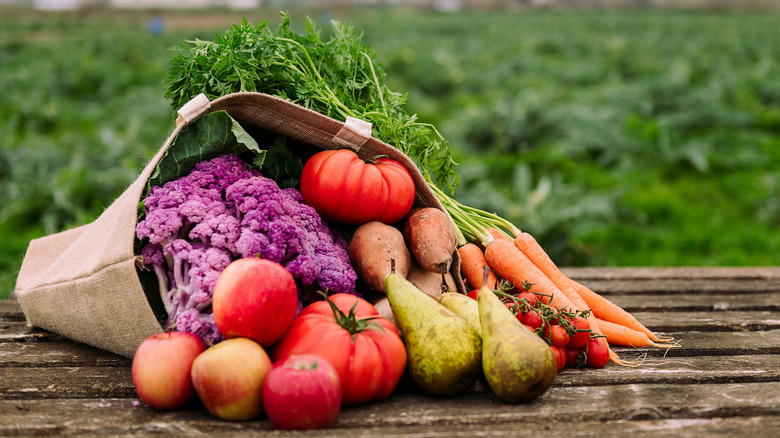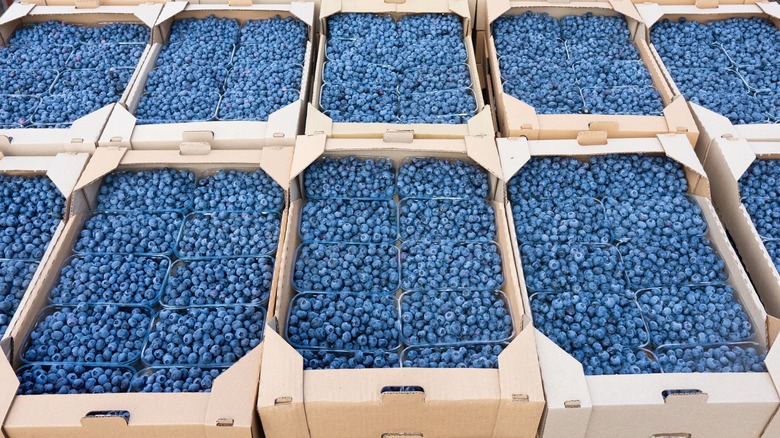The USDA Is Getting Stricter With The Definition Of 'Organic'
Ever since the term "organic" entered the food scene, there's seemingly been a struggle to prove the accuracy of that word as a bona fide, government-mandated label. As the New Yorker points out, when a consumer is choosing to buy an organic product, they're also buying into the promise that it was grown without the use of certain herbicides, pesticides, and fertilizers. Therein lies the problem: If this hasn't been monitored during the growing and harvesting process, or corroborated by an objective third party, then consumers might as well just be buying conventional produce.
Now, according to a recent report by Food Business News, it looks like the U.S. Department of Agriculture (USDA) is taking new measures to safeguard the quality of agricultural products labeled as "organic" imported into the country. Specifically, the USDA will do this with help from the USDA's National Organic Program (NOP), which creates rules and oversees regulations that safeguard the accuracy of products labeled as organic. First launched in 1990 under the Organic Foods Production Act and officially founded in 2000, the NOP's latest rules set to be issued are designed to further secure the organic food supply chain responsible for bringing these products into the U.S. So what will these mandates look like?
New rules will mostly apply to imported products
According to Food Business News, one of the largest changes resulting from the NOP's expanded ruleset — named the Strengthening Organic Enforcement rule — is that all organic products entering the U.S. will need NOP import certificates. These certificates will improve the NOP's ability to oversee and inspect the quality of products that claim to be organic. They will also require that organic produce be shipped in containers that are labeled as such, along with traceable documentation to improve auditing capabilities.
In a statement to Food Business News, Jenny Lester Moffit, the USDA's undersecretary for marketing and regulatory programs, emphasized the sweeping importance of these mandates. "The Strengthening Organic Enforcement rule is the biggest update to the organic regulations since the original act in 1990," noted Moffit, adding it provides "a significant increase in oversight and enforcement authority to reinforce the trust of consumers, farmers, and those transitioning to organic production."
As Food Navigator explains, the organic industry is a highly profitable and growing sector of retail foods. It's projected to make up $220 billion in sales by the year 2024, which makes the proposition of fraudulent activities highly profitable. Whether these new regulations will decrease those activities remains to be seen, as all affected businesses will have until March 19, 2024, to comply with these new regulations, per Food Business News.

